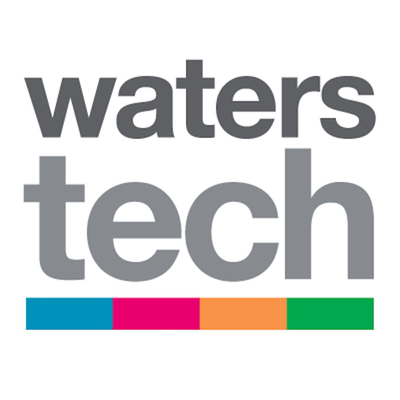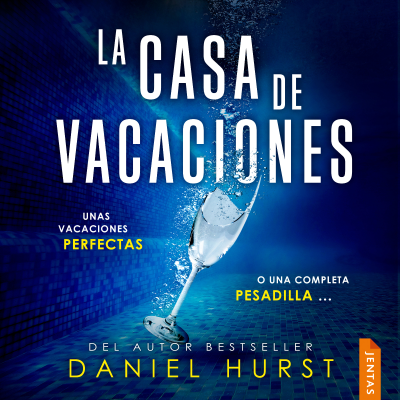
Waters Wavelength
inglés
Tecnología y ciencia
Disfruta 30 días gratis
4,99 € / mes después de la prueba.Cancela cuando quieras.
- 20 horas de audiolibros / mes
- Podcasts solo en Podimo
- Podcast gratuitos
Acerca de Waters Wavelength
Wei-Shen Wong and Anthony Malakian discuss the hottest financial technology topics in the capital markets every week.
Todos los episodios
199 episodiosEpisode 199: Working Through Covid-19
This week Marshall Saffer, vice president and head of Americas sales at Hazeltree, joins Tony on the podcast to talk about software development issues that have arisen since the start of coronavirus and controversies around Microsoft Excel. 2:30 – Wei-Shen and Tony discuss his recent article on the Stevens Institute of Technology, which is creating an artificial exchange aimed initially at the HFT crowd. https://www.waterstechnology.com/trading-tools/7556791/stevens-institute-capco-lay-out-commercialization-efforts-for-new-artificial-exchange 9:30 – Marshall talks about his role at Hazeltree, which includes building out the sales organization around treasury management for buy-side firms. He then discusses some of the challenges of working remotely. 18:00 – Looking at software development from a sales perspective, Marshall says that Covid-19 has been the reason many projects were put on hold or delayed. 22:30 – Then, they discuss working with Excel, both on a personal and company-wide level. Despite new tools being deployed frequently, the industry still relies on Excel. 28:30 – Marshall explains how hedge funds should shine during volatility. 31:00 – Hazeltree acquired ENSO Analytics from CME Group back in 2019. Marshall talks about how the integration has been going since October.
Episode 198: DTCC’s Peve on DLT
Jennifer Peve, managing director of business innovation at the DTCC, joins to discuss two new projects the company is working on in the distributed ledger technology (DLT) space, and how the Trade Information Warehouse (TIW) replacement is coming along. 3:30 – Jennifer joins the podcast, and gives an overview of her role at DTCC. 6:00 – Next, she explains how the Project Ion and Project Whitney case studies came about. https://www.waterstechnology.com/operations/7549201/dtcc-future-of-settlement-revamp-depends-on-industry-appetite 11:00 – Does the industry have an appetite for a full-fledged DLT revamp to optimize the settlement process in the public markets? What happens if the appetite isn’t there? 16:30 – What is the education component here? 18:00 – What are the next steps that will take place for Project Ion? 21:30 – Jennifer talks about Project Whitney being a whitespace opportunity for the DTCC and how tokenization plays a key role in digitizing the private market asset lifecycle. 25:30 – She walks through what some of the steps in the next six months will look like for Project Whitney. 27:00 – The DTCC’s other big DLT-related project is the TIW replacement. Jennifer explains where that project is at in light of the Covid-19 pandemic. 29:00 – There are many skeptics when it comes to blockchain, and some think current DLTs are watered-down versions of those platforms that were originally hyped. Jennifer gives her thoughts on how DLTs have evolved over the last four years.
Episode 197: A Look at Innovation
This week, Benjamin Quinlan, CEO and managing partner at Quinlan & Associates, joins the podcast to talk with Wei-Shen about his new report Beyond The Buzz. As well as delving in to whether he sees any real value in an “innovation lab”. https://www.quinlanandassociates.com/insights-beyond-the-buzz/ 3:00 – Benjamin joins the podcast. He and Wei-Shen discuss “innovation” as a buzzword and what separates a good innovation head from a bad one. 8:30 – Then, they talk about companies such as Kodak, Nokia, Blockbuster, Blackberry, and Myspace that seem to have dropped off the map after being some of the biggest names in technology. How does this compare to similar big-names in capital markets? 12:00 – Benjamin points out how the pressure to innovate can be a problem for some companies who are pouring money into things like “innovation labs” that are yet to yield much reward. 21:00 – As we are seeing more and more partnerships between cloud providers and financial services firms, Benjamin discusses what this means for cloud providers based in Asia. 26:30 – Innovation labs need to be more focused on one part of the business to add value across the whole business. You cannot simply use the word “innovation” as a remit. 35:00 – In the fintech space, sometimes the hype exceeds the returns. Benjamin talks through his cynicism about buzzwords like blockchain and AI. 38:00 – Each firm has a different set of needs. How should start-ups set their selling strategies to investment banks, asset managers, and hedge funds? 43:30 – Lastly, Benjamin tells Wei-Shen how he is continuing to innovate in his day-to-day and business life during Covid-19.
Episode 196: Bloomberg’s Gerard Francis, Part 3
This week, Gerard Francis, global head of enterprise data at Bloomberg, comes back on the podcast to talk with Tony about lessons learned during Covid, the acceleration of cloud usage, and making data more accessible. The last time he joined the podcast, Gerard spoke about the alternative data space. (https://www.waterstechnology.com/data-management/4275716/wavelength-podcast-episode-161-gerard-francis-of-bloomberg) 2:00 – Tony talks about his story on Trading Technologies' Echo Chamber and its goal of aggregating order flow on the TT platform. (https://www.waterstechnology.com/data-management/7548941/trading-technologies-unveils-new-futures-market-data-feed) 7:00 – Gerard joins the podcast. He and Tony start off talking about the experience of transitioning to a work-from-home situation. 10:00 – Then, they talk about how the Covid situation accelerates the importance of cloud, and the decisions Bloomberg has made to making datasets and services available in the cloud. 14:30 – Gerard explains the thinking behind Bloomberg Enterprise Access Point (BEAP) and making data more easily available to people. 17.30 – What were the pressure points that led to this? 20: 30 – Is there more emphasis on allowing customers to do what they want with data? 23:00 – Gerard talks about Data License+, the barriers of creating it in the past, and how the Polarlake acquisition in 2012 helped. (https://www.waterstechnology.com/data-management/7540596/bloomberg-debuts-data-license-plus-to-aid-data-management-during-covid-19) 26: 30 – What has changed financial institutions’ perception of the cloud? 29:00 – Were any adjustments made to Bloomberg’s licensing models during this environment? 30: 30 – Gerard discusses the different types of data that are valuable now, and how consolidation in the alternative data space is inevitable. 36:00 – They wrap up talking about personal lessons and takeaways from working from home.
Episode 195: The Challenges of Returning to the Office
This week, Wei-Shen and Tony discuss on how companies should be communicating ‘back-to-office’ moves to their employees. Is there a right way to do this, and if poorly communicated, what could it mean for staff morale? Companies should think about the full ecosystem before executing a full move back to “normalcy”. Then, they dig a little deeper into how the work-from-home situation should mean for productivity levels. They also talk about the practicalities and health concerns in getting staff back into the office, especially in crowded cities. Everyone is affected by this pandemic and physical distancing at varying levels mentally. How do we take care of our mental health during this time? They wrap up talking about how they deal with stress and what gives them joy. Next week, they’ll be back with a guest.
Elige tu suscripción
Premium
20 horas de audiolibros
Podcasts solo en Podimo
Podcast gratuitos
Cancela cuando quieras
Disfruta 30 días gratis
Después 4,99 € / month
Premium Plus
100 horas de audiolibros
Podcasts solo en Podimo
Podcast gratuitos
Cancela cuando quieras
Disfruta 30 días gratis
Después 9,99 € / month
Disfruta 30 días gratis. 4,99 € / mes después de la prueba. Cancela cuando quieras.

































